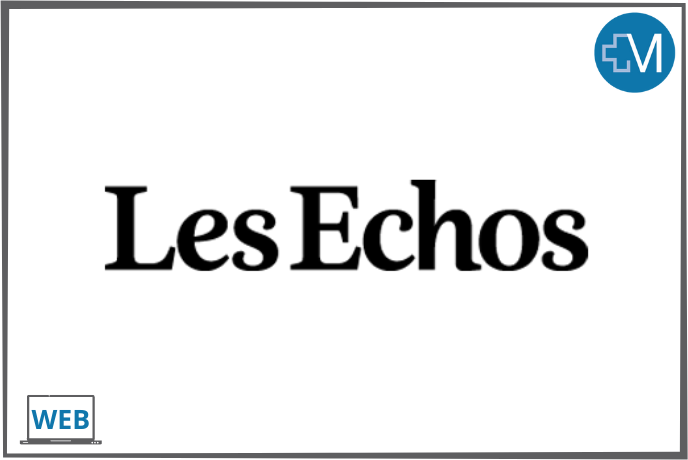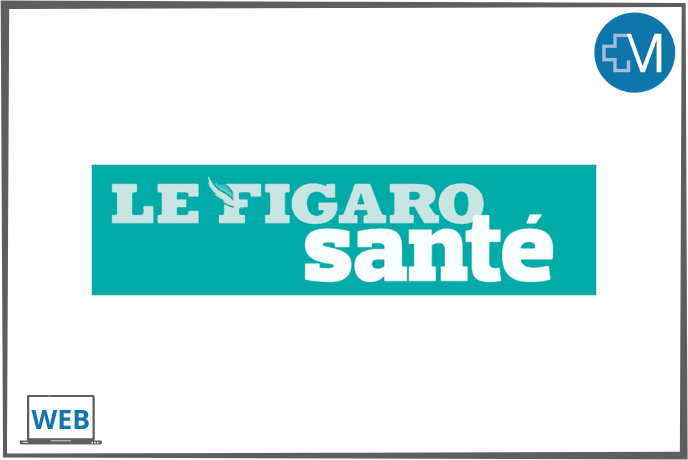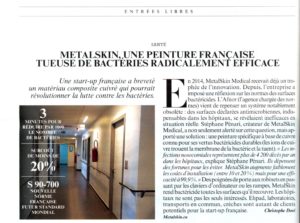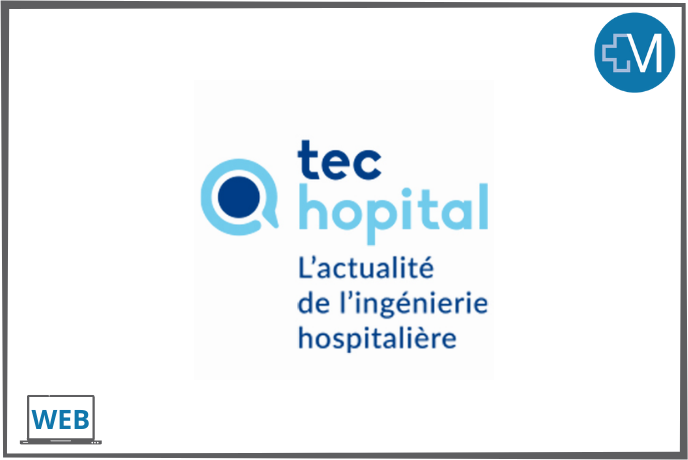MetalSkin®: a bactericidal paint that sets a revolutionary standard
MetalSkin Technologies, based in Balaruc-les-Bains in the Hérault region of France, has developed a copper-based paint to eradicate bacteria, microbes, germs and viruses, particularly in the hospital environment. The TPE, winner in the “take a step ahead” category, has made work on the standard one of its spearheads in terms of innovation.
Fight against the proliferation of bacteria and microbes, using the strong antiseptic properties of copper. This is the innovation brought by MetalSkin Technologies, a small company from Hérault, France, managed by Stéphane Penari and René Belin. “Copper has been used since the Phoenicians, who covered their boats with it to prevent the proliferation of algae, explains Stéphane Penari. It’s a healthy but expensive product. “Impossible, in terms of cost and risk of theft, to deploy copper handles for all doors hospitals and hotels. Metalskin’s innovation consists of reducing copper by powder and incorporate it into resins, to produce a pigmented paint. This mixture is applied to non-porous surfaces, “with the thickness of only one coat. thick coat of paint. We just treat the potential transfer surface of the bacteria by hand,” he says. A test, carried out at the Saint-Roch clinic in Montpellier in 2013, has proven to be conclusive. Three series of patents have since been filed, in France and abroad.
Inadequate initial standard
A normative process is at the origin of this innovation. “In 2013, during the first tests, there was only one international standard (ISO 22196), whose protocol was far removed from real field conditions,” rewinds Stéphane Penari. And with good reason: the surface had to be wrapped in an opaque film, then placed in an oven for 24 hours under certain conditions (37 degrees, 90% humidity). “I explained to Afnor that we would have difficulty solving the scourge of nosocomial infections with such a standard! ».
In 2016, Stéphane Penari will conduct a study on the normative reference system, consulting doctors, risk prevention specialists, etc. The Afnor creates a standardization commission, bringing together various experts, such as the Anses, microbiologists or specialists in regulations and materials. “We set thresholds and methods, and determined the strains tested. The results had to speak to food manufacturers and hygienists.
To comply with this standard, a bactericidal solution must generate a division of the bacterial solution into two parts. per 100 of the number of bacteria in one hour on the treated surface, out of the 4 bacteria tested. Advantage of the standard: “At present, a quality standard is attached to an unquestionable standard. And, for its development, everyone focused on the the same objective of quality,” observes Stéphane Penari.
Towards an ISO standard?
The public health stakes are enormous. In France, 750,000 people are infected each year in hospitals, i.e. one patient in 20, and 4,500 deaths occur as a result of nosocomial infections. The NF S90-700 standard could be included in the specifications during renovation or construction work in hospitals, but also in hotels, places of continuous passage. We don’t know how many fewer deaths and infections there would be with the use of this standard,” he says. What we do know is that the bacterial contamination will be lower than if something is not up to standard. ».
MetalSkin Technologies (200,000 euros in sales) has qualified French industrialists (painters and polishers) capable of applying the product. “Our job is to license our technology, and to lobby so that our products are known, prescribed and even imposed”, explains Stéphane Penari. The MetalSkin® solution can reduce the number of bacteria by a factor of 1,000 in three minutes, which is far beyond the norm. “But I didn’t want people to say that MetalSkin® has become a standard,” smiles the CEO. A hiring phase and a fundraiser are planned for 2020, for business development and export. A first contract is signed in China for the bactericidal protection of keyboards and mice. of computers. In addition, an agreement has been concluded with an assistant to the project owner. (ISMS, Levallois-Perret), specialized in the health sector.




